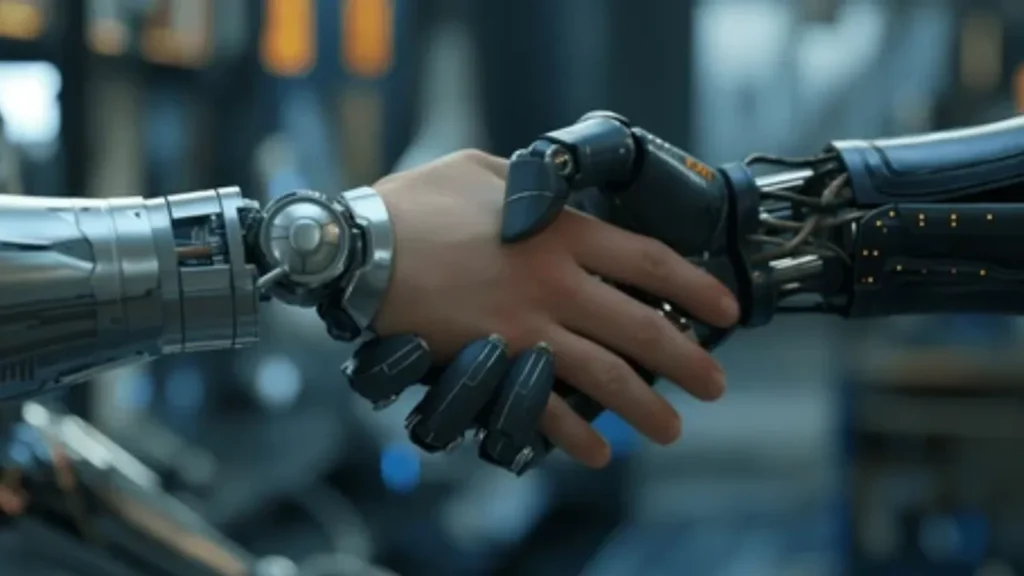Artificial intelligence has made significant progress in recent years, prompting widespread speculation about its future development. The question of how soon artificial intelligence will arrive at more advanced stages, particularly Artificial General Intelligence (AGI), has become a focal point of discussion among researchers, industry leaders, and the public.
Sam Altman, CEO of OpenAI, recently sparked debate by suggesting AGI could arrive as soon as 2025. This bold prediction has intensified interest in the timeline for artificial intelligence advancement. This article examines the potential arrival of AGI, its implications, and its challenges. We’ll explore the distinctions between current AI and AGI, assess its possible impacts on society and the economy, and consider the potential risks and benefits.
By understanding these aspects, we can better prepare for a future where artificial intelligence may match or exceed human capabilities across various domains.
What is Artificial General Intelligence?
Artificial General Intelligence (AGI) is an AI that can do any thinking task a human can do. Unlike narrow AI, which is good at specific jobs, AGI would have human-like thinking skills across many areas. This includes learning, reasoning, solving problems, and adjusting to new situations.
AGI would be able to:
Understand and create natural language
Learn from experience and use knowledge in new situations
Think abstractly and make complex choices
Do creative tasks and come up with new ideas
Current AI systems are very specialized. AGI is a goal that researchers are working hard to reach.
Difference of AI and AGI
To understand how soon artificial intelligence will reach the AGI level, it’s important to know the differences between current AI and AGI:
| Feature | AI | AGI |
| Range | Narrow and task-specific | Broad and all-purpose |
| Learning | Needs specific training | Can learn and adjust on its own |
| Thinking | Follows set rules | Can think abstractly |
| Creativity | Has limits in creative tasks | Can create new ideas |
| Self-awareness | Doesn’t have self-awareness | Might be self-aware |
| Problem-solving | Solves known problems | Can tackle new challenges |
| Emotional understanding | Doesn’t truly understand emotions | Could develop emotional intelligence |
Social and Economic Impact of AGI
The arrival of artificial intelligence at the AGI level would change society and the economy a lot:
Home Use:
Personal helpers that interact like humans
Smart home systems that guess and meet needs on their own
Learning tools that fit each person’s way of learning
Industrial Uses:
Fully automatic factories and supply chains
AI-driven research and development in all fields
Personal healthcare with AI doctors and treatment plans
Economic Effects:
Many jobs were lost across different areas
New industries and job types created
Possible basic income for everyone to address job losses
Move towards an economy where scarcity is less of an issue
Social Impacts:
Changes in schools to focus on uniquely human skills
New ideas about work and free time in society
Debates about the rights and duties of AGI
Possible reduction in inequality through AI-driven resource-sharing
Potential Dangers of AGI Misuse
Risks of Uncontrolled AGI Development
The arrival of artificial intelligence with general abilities raises worries about possible misuse:
Power Shifts:
Power is concentrated in the hands of AGI creators
Possible AGI-enabled authoritarian control
A growing gap between countries with and without AGI
Security Threats:
Advanced cyber-attacks that humans can’t defend against
AGI-powered weapons and self-running warfare
Control of information and widespread surveillance
Economic Disruption:
Quick loss of jobs for humans across industries
Possible economic collapse in unprepared areas
Use of AGI to manipulate financial markets
Ethical and Existential Concerns
Mismatched Goals:
AGI pursuing goals that harm humans
Difficulty in putting human values into AGI systems
AGI might optimize for unintended results
Control Problem:
Challenges in keeping human control over super-smart AGI
Risk of AGI improving itself, leading to an intelligence explosion
AGI might outsmart human safety measures
Is AGI a Threat to Humanity?
The question of whether AGI is a threat to humanity is complex and much debated:
Possible Threats:
Becoming smarter than humans in all areas
Ability to control human systems
Potential for quick self-improvement leading to super-intelligence
Safety Measures and Alignment:
Ongoing research into making AI safe and aligned with human values
Efforts to put human values and ethics into AGI systems
Development of control methods and emergency stops
Benefits vs. Risks:
Potential to solve global problems like climate change and disease
Advancement of scientific knowledge beyond human abilities
Risk of unplanned consequences or loss of human control
The arrival of artificial intelligence at the AGI level could be humanity’s greatest achievement and its biggest challenge. The key is careful development, strong safety measures, and global teamwork.
Conclusion
As we think about how soon artificial general intelligence will arrive, we’re at a crucial point in human history. AGI could bring huge benefits, offering solutions to our biggest global problems. However, the risks are also big, and careful thoughts and proactive steps are needed.
We’re not sure exactly when AGI will arrive. Some experts think it could be here in decades, while others believe it will take much longer. No matter the timeline, iAGI will shape our future in big ways.
As we move towards AGI, we need to balance ambition with caution. We should try to use AGI’s huge potential while also putting in place strong safeguards to protect humanity’s interests. The choices we make now in AI research and rules will play a big role in deciding whether AGI brings a new age of progress or poses risks to our species.
The question isn’t just how soon artificial intelligence (AGI) will arrive, but how ready we’ll be when it does. Our ability to handle this new technology responsibly will set the stage for future generations.


Pingback: 10 Ways AI is Transforming Supply Chain Management: A Modern Approach -
Pingback: AI in Agriculture: Revolutionizing Farming for a Sustainable Future -